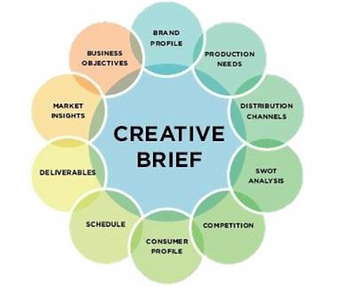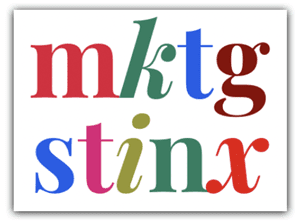590
Those of us who create advertising or make advertising decisions need to start from a position of reality. What can advertising realistically achieve and how can we best achieve it?
Advertising is a small part of marketing. We don’t control the product. We don’t control the pricing. We don’t control the distribution or the customer service or the marketing strategy. The only thing we control is one aspect of communication.
Which leads to a big question. What is the one capability of advertising that has the greatest likelihood of resulting in success? Is it differentiation? Is it positioning? Is it creativity? Is it precision targeting? Is it empathy? Is it brand purpose? Is it salience (whatever that means.) Or is it something else?
The correct answer is, it’s something else. But until we know what that something else is, our objective is not clear and our task is not well-defined.
Before launching a new campaign, marketers, branding experts, and advertising practitioners often spend months trying to define what a brand should stand for. We are very fond of the concept of “brand meaning.”
This is driven by the belief that consumers impute specific attributes to brands and exercise their buying prerogatives based on the meaning they assign to the brand, and how well that meaning aligns with their personal needs or values.
Marketers also believe that consumers want to have “relationships” with brands, and be part of a brand’s “tribe” or “community” and “co-create” with brands and, of course, respect and trust their “brand purpose.” I think this is largely horseshit.
The idea that the brands we use are intensely important to us and that we spend time and energy sussing out their meaning and trustworthiness is a deeply ingrained marketing fantasy. For most people, their relationship with most of the brands they buy is shallow, transactional, and contingent. Brands are not nearly as important or meaningful as we marketers would like them to be.
Are there some brands we’re attached to? Sure. We each have a handful. But consumers are faced with thousands of brands. The likelihood of yours being one of the handful they are strongly attached to is absurdly small.
Whenever I argue that brands are not as important to consumers as we marketers think they are, I get the same response from traditional marketers: “Oh, yeah, well how about Apple and Nike…?” I call this arguing from the extreme. They take the most extreme version of something and pretend it’s the norm. Of course, there are a handful of brands – like Apple – that have very loyal customers to whom the brand may be very meaningful. These handful of brands are two or three standard deviations from normal and, I’m sorry, but your brand ain’t one of them.
Consumers are annoyingly impervious to understanding the finer points of product positioning, differentiation, and brand meaning. Don’t agree? Stop someone on the street today and ask them what the difference is between BMW and Mercedes-Benz? Ask them for the difference between Coke and Pepsi? Ask them how Nike is different from Adidas? I will bet you very large sums of money that their responses will have little to no correlation to the strategic documents floating around those brands’ headquarters. And these are some of the most successful brands in the world.
Each of these brands has spent tens of millions of dollars over the years concocting delusions of “differentiation.” They believe their brands are successful because of their unique “brand meaning.” They’re wrong.
The main advertising influence on their success is…




